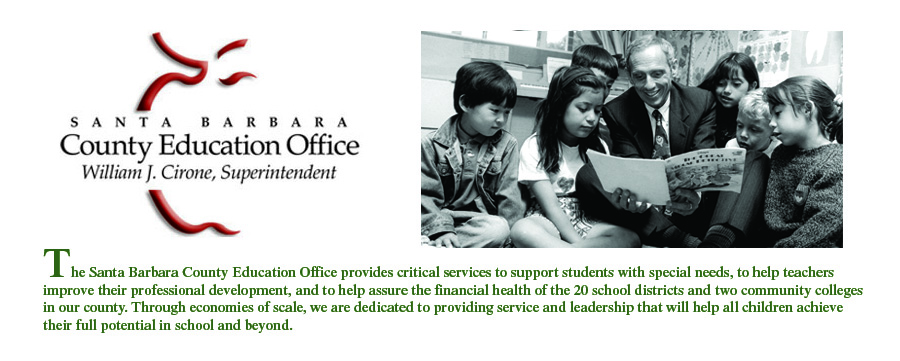By
Bill Cirone, Santa Barbara County Superintendent of Schools
In a Business Insider article, journalist
Drake Baer profiled a handful of prominent, successful people from several
walks of life, from the arts to coaching to business.
Despite their
different personalities and passions, successful people have several traits in
common. The good news is that parents can help nurture and cultivate these
traits among their children.
First,
successful people enjoy their work. They can be good at it because they like
doing it. The late, great poet Maya Angelou had this to say about enjoying what
you do: “Success is liking yourself, liking
what you do, and liking how you do it.”
Successful
people almost always have a positive attitude and plenty of confidence that
gets them through the rough spots. Winston Churchill, British Prime Minister
during the darkest hours of World War II, certainly knew a lot about
adversity. But it was his attitude in those adverse circumstances that shaped
him.
“Success
is going from failure to failure,” Churchill once
said, “without losing enthusiasm.” While this quote comes from the middle of
the last century, it is just as relevant today. Successful people invariably use negative experiences to
discover their strengths. They see negatives as challenges to overcome and to
learn from.
Successful
people are also decisive, disciplined goal-setters. They don’t let distractions
get in the way. Inventor Thomas Edison is arguably the greatest American
example of the kind of focus that successful people apply to their endeavors.
Edison’s work ethic was legendary. He would sometimes work on a single project
uninterrupted for three consecutive days. He truly lived the motto set forth in
his famous quote: “Success is 1% inspiration and 99% perspiration.”
Successful
people are also persistent. They keep at it until the goal is reached, where
others may get discouraged and choose another path.
They are also
risk takers, in the spirit of “Nothing ventured, nothing gained.”
They have
developed good communication skills and problem-solving skills.
They surround
themselves with competent, responsible, and supportive people, and know how to
tell the difference.
They are
healthy, high-energy people, and they schedule time to renew themselves before
problems can arise.
Finally,
self-reflection is critical in evaluating one’s success. Legendary UCLA
basketball coach John Wooden offered this definition: “Success is peace of
mind,” he said, “which is a direct result of self-satisfaction in knowing you
did your best to become the best you are capable of becoming.”
